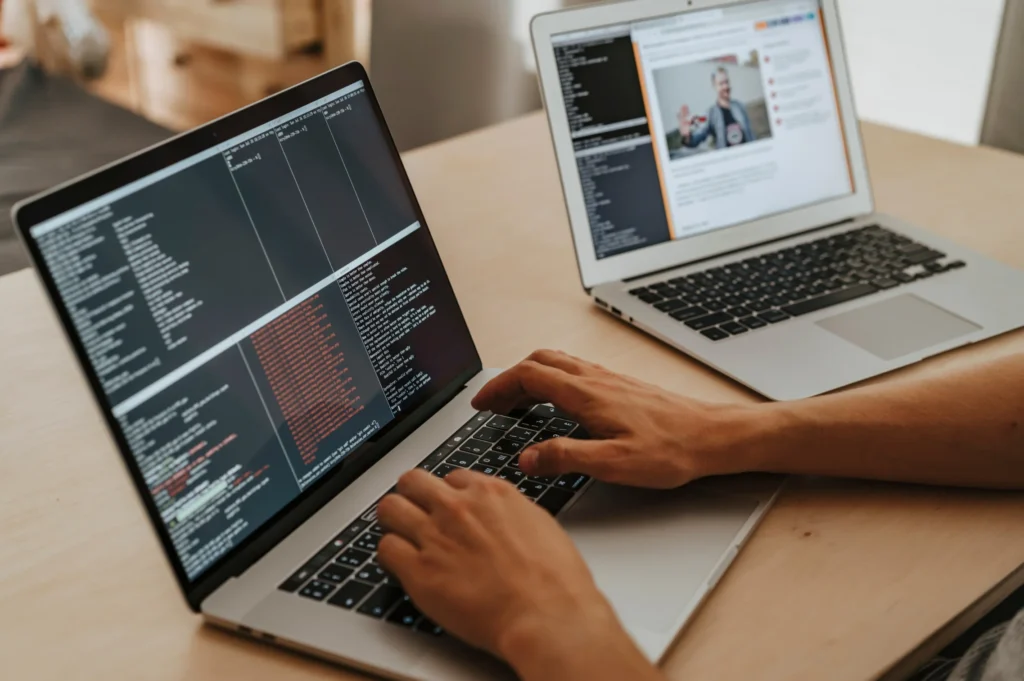How blockchain is shaping the Future of Contracts?
Written by Marguerite Maroudis | TechLegalExperts

In an era marked by rapid technological change and increasing globalization, the way we form and enforce contracts is being revolutionized by blockchain technology. Unlike traditional contracts, which often rely on costly and time-consuming intermediaries—such as lawyers, notaries, and banks—blockchain-enabled contracts streamline processes, reduce friction, and enhance trust. The integration of blockchain into contract design and execution is poised to transform legal, financial, and commercial landscapes worldwide.
I. Foundations and Core Concepts
Before delving into the technical essence of blockchain and its transformative potential in contract formation, it is crucial to understand the foundational principles behind this technology. By examining the basic architecture of blockchain and the advent of self-executing smart contracts, we can appreciate how these core concepts reshape the traditional frameworks of trust, verification, and agreement.
A. Understanding the Basics: What is a Blockchain?
A blockchain is a decentralized, distributed ledger composed of blocks of data that are cryptographically linked and resistant to alteration. Each block contains a record of transactions that are validated and agreed upon by a consensus mechanism. Because each subsequent block includes a cryptographic hash of the previous block’s data, altering a single transaction would require recalculating the entire chain’s cryptographic proofs, making tampering nearly impossible (1).

This decentralized trust model contrasts sharply with traditional databases and contracting systems that depend on a central authority. Instead, a network of nodes maintains and verifies the ledger, ensuring that no single party wields unilateral control.
B. From Paper to Code: The Emergence of Smart Contracts

The concept of smart contracts was first proposed by legal scholar and cryptographer Nick Szabo in the 1990s (2). Smart contracts are self-executing agreements with the terms encod (Ethereum Foundation, 2015)ed directly into software. When pre-defined conditions are met, the contract executes automatically—transferring funds, releasing assets, or updating records (3)—without the need for intermediaries. Ethereum’s blockchain, introduced in 2015, mainstreamed smart contracts by providing developers with a robust platform for writing and deploying decentralized applications (4).
II. Advantages and Applications
Building upon the foundational concepts, we now turn to the tangible benefits and real-world use cases emerging from blockchain-based contracts. By exploring the advantages they offer and examining their applications across diverse industries, we gain insight into how these innovative systems can reshape markets and operations.
A. Key Advantages of Blockchain-Based Contracts

1. Enhanced Security and Integrity:
Blockchain’s cryptographic foundations ensure the integrity of contractual agreements. Unauthorized changes are easily detectable and virtually infeasible due to the need for network consensus (5).
2. Cost and Time Efficiency:
By automating routine tasks and reducing reliance on intermediaries, blockchain-based smart contracts can streamline contract execution, lowering both time and cost. For example, escrow functions can be coded into a smart contract, obviating the need for a trusted third party (6).
3. Transparency and Traceability:
Every transaction is recorded on a shared ledger visible to all authorized participants. This transparency allows for real-time auditing and significantly lowers the risks of fraud and corruption (7).
4. Global Access and Standardization:
As blockchain networks do not recognize geographical boundaries, smart contracts can facilitate cross-border transactions and agreements (8). This fosters global commerce, enabling parties in different jurisdictions to collaborate seamlessly, often circumventing complex and heterogeneous national regulatory frameworks (9).
B. Use Cases Across Industries

(1) (Yermack, David (2017), Corporate Governance and Blockchains., Review of Finance, 21(1), p.10
(2) Szabo, N. (1997). The Idea of Smart Contracts.
(3) Werbach, Kevin & Cornell, Nicolas (2017), Contracts Ex Machina, Duke Law Journal, 67(2), p. 320.
(4) Ethereum Foundation (2015). Ethereum White Paper.
(10) Werbach, Kevin (2018), p. 45, The Blockchain and the New Architecture of Trust., MIT Press.
(13) Werbach, Kevin (2018), p. 45, The Blockchain and the New Architecture of Trust., MIT Press.
(16) Cong, L. W., & He, Z. (2019). Blockchain Disruption and Smart Contracts. The Review of Financial Studies, 32(5), 1754–1797. DOI: 10.1093/rfs/hhz007
(17) Clack, C. D., Bakshi, V., & Braine, L. (2016). Smart Contract Templates: Foundations, Design Landscape and Research Directions. ArXiv
1. Finance and Banking:
Blockchain-based contracts are already reshaping financial services. From derivatives trading to syndicated loans (10), institutions like J.P. Morgan and the R3 Consortium are experimenting with smart contracts to automate settlements and ensure compliance (11).
2. Supply Chain Management:
Smart contracts can enforce quality checks, track shipments, and release payments automatically once predefined milestones are met. The World Economic Forum has reported that blockchain can enhance transparency, traceability, and fairness in global supply chains (12).
3. Real Estate:
Tokenizing property assets and encoding the transfer of deeds into a smart contract reduces paperwork and transaction times. Governments and start-ups alike are exploring blockchain land registries to increase trust and transparency in property transfers (13).
4. Healthcare:
Blockchain-based contracts can codify patient consent, simplify claims processing, and ensure the secure sharing of medical records. This improves data integrity and patient privacy while reducing administrative burdens (14).
III. Governance, Research, and the Future
As blockchain-based contracts evolve, questions of governance and oversight become increasingly critical. Regulators and lawmakers must reconcile existing legal frameworks with the technical realities of self-executing agreements. At the same time, academic and industry stakeholders continue to provide research, standards, and guidance that shape the trajectory of this transformative technology.
A. Legal and Regulatry Considerations
The global legal system is working to catch up with this emerging technology. Issues such as enforceability, jurisdiction, and the resolution of smart contract disputes remain areas of active research. Legal scholars and policymakers are examining how existing laws can accommodate these self-executing agreements and when new regulations might be necessary (15).

Additionally, standards-setting bodies and industry consortia—such as the IEEE Blockchain Initiative—are developing frameworks and best practices for secure and reliable smart contracts (IEEE Blockchain Initiative). Collaborative efforts between regulators, technologists, and industry stakeholders are vital to ensure that the evolution of blockchain-based contracting proceeds responsibly and ethically.
B. Academic and Industry Support
Research centers and academic institutions play a critical role in advancing blockchain contract technology. The MIT Digital Currency Initiative, the Stanford Center for Blockchain Research, and various other university-led programs contribute to foundational research, pilot programs, and the education of future innovators.

Peer-reviewed scholarship on blockchain contracts is abundant. For instance, the work of Cong and He (2019) in The Review of Financial Studies rigorously examines how blockchain affects financial contracts (16). Clack, Bakshi, and Braine’s (2016) seminal research outlines a taxonomy for smart contract templates and identifies key research directions (17). Their contributions, along with many others, help inform policymakers, industry leaders, and technologists about the opportunities and constraints of blockchain-based contracts.
The Road Ahead
As blockchain technology matures, and as more businesses, governments, and NGOs adopt it, the potential for smart contracts to reshape traditional models of agreement only grows. Over time, legal frameworks will adapt, trusted intermediaries will find new roles, and smart contracts will become more robust, scalable, and user-friendly.
Indeed, the future of contracts lies at the intersection of law, economics, computer science, and policy. Blockchain, as a technology of trust, has the potential to democratize access to reliable agreements, reduce transactional friction, and create a more equitable global marketplace. The shift may not be instantaneous or uniform, but the direction is clear: blockchain is not just shaping the future of contracts—it is building it.
The information provided in this publication is of a general nature and should not be construed as accounting, business, financial, investment, legal, tax, or other professional advice or services provided by TechLegalExperts. It is important to note that this publication does not serve as a replacement for seeking professional advice or services, and it should not be used as the sole basis for making any decisions or taking actions that could impact your business. Prior to making any decisions or taking any actions that may affect your business, it is recommended to consult with a qualified professional advisor. TechLegalExperts cannot be held responsible for any losses incurred by individuals who rely solely on the information provided in this publication Copyright © 2024 TechLegalExperts All rights reserved
